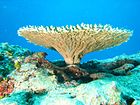Related Research Articles

The Great Barrier Reef is the world's largest coral reef system, composed of over 2,900 individual reefs and 900 islands stretching for over 2,300 kilometres (1,400 mi) over an area of approximately 344,400 square kilometres (133,000 sq mi). The reef is located in the Coral Sea, off the coast of Queensland, Australia, separated from the coast by a channel 160 kilometres (100 mi) wide in places and over 61 metres (200 ft) deep. The Great Barrier Reef can be seen from outer space and is the world's biggest single structure made by living organisms. This reef structure is composed of and built by billions of tiny organisms, known as coral polyps. It supports a wide diversity of life and was selected as a World Heritage Site in 1981. CNN labelled it one of the Seven Natural Wonders of the World in 1997. Australian World Heritage places included it in its list in 2007. The Queensland National Trust named it a state icon of Queensland in 2006.

Sylvia Alice Earle is an American marine biologist, oceanographer, explorer, author, and lecturer. She has been a National Geographic Explorer at Large since 1998. Earle was the first female chief scientist of the U.S. National Oceanic and Atmospheric Administration, and was named by Time Magazine as its first Hero for the Planet in 1998.

Dorothy Hill, was an Australian geologist and palaeontologist, the first female professor at an Australian university, and the first female president of the Australian Academy of Science.
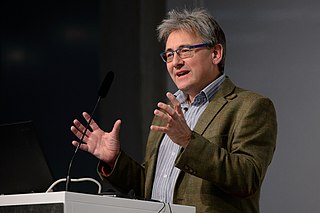
Callum Michael Roberts is a British marine conservation biologist, oceanographer, science communicator, author and research scholar at the University of Exeter. He was formerly at the University of York. He is best known for his research and advocacy related to marine reserves and the environmental impact of fishing.
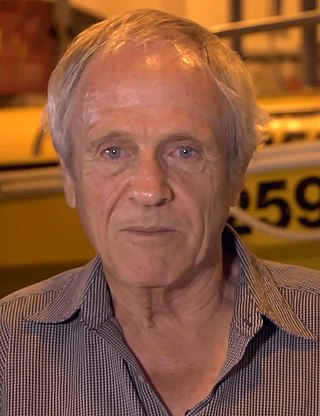
John Edward Norwood Veron, credited in research as J. E. N. Veron, and in other writing as Charlie Veron, is an Australian biologist, taxonomist, and specialist in the study of corals and reefs. He is believed to have discovered more than 20% of the world's coral species.

Henry Caselli Richards, was an Australian professor of geology, academic and teacher.

Charles Hedley was a naturalist, specifically a malacologist. He was born in Britain, but he spent most of his life in Australia.

Ove Hoegh-Guldberg, is a biologist and climate scientist specialising in coral reefs, in particular bleaching due to global warming and climate change. He has published over 500 journal articles and been cited over 50,000 times.

Reef Check is an international non-governmental organization dedicated to the conservation of two reef ecosystems: tropical coral reefs and Californian rocky reefs. The Foundation is headquartered in Los Angeles, California, United States, but uses data from volunteer scuba diver teams in over 80 countries, ranging from Australia, Japan, to even Germany. It is the United Nations’ official coral reef monitoring program.

The Structure and Distribution of Coral Reefs, Being the first part of the geology of the voyage of the Beagle, under the command of Capt. Fitzroy, R.N. during the years 1832 to 1836, was published in 1842 as Charles Darwin's first monograph, and set out his theory of the formation of coral reefs and atolls. He conceived of the idea during the voyage of the Beagle while still in South America, before he had seen a coral island, and wrote it out as HMS Beagle crossed the Pacific Ocean, completing his draft by November 1835. At the time there was great scientific interest in the way that coral reefs formed, and Captain Robert FitzRoy's orders from the Admiralty included the investigation of an atoll as an important scientific aim of the voyage. FitzRoy chose to survey the Keeling Islands in the Indian Ocean. The results supported Darwin's theory that the various types of coral reefs and atolls could be explained by uplift and subsidence of vast areas of the Earth's crust under the oceans.

Jeremy Bradford Cook Jackson is an American ecologist, paleobiologist, and conservationist. He is an emeritus professor at the Scripps Institution of Oceanography, senior scientist emeritus at the Smithsonian Institution, and visiting scientist at the American Museum of Natural History Center for Biodiversity and Conservation. He studies threats and solutions to human impacts on the environment and the ecology and evolution of tropical seas. Jackson has more than 170 scientific publications and 11 books, with nearly 40,000 citations listed on Google Scholar.
John West Wells was an American paleontologist, biologist and geologist who focused his research on corals.
The International Cannabinoid Research Society (ICRS) is a professional society for scientific research in all fields of the cannabinoids, based in North Carolina, US. ICRS is one of the very few global non-profit medical societies or associations related to cannabis and cannabinoids.
The Australasian Hydrographic Society (AHS) is a professional hydrographic organisation covering Australasia, the South West Pacific and South East Asia. It brings together practitioners and representatives of industry in the region, particularly those involved in maritime and port services, undersea exploration, offshore oil and gas projects and associated infrastructure. Because these sectors are closely linked to rapid growth in economic development and trade in the region, it is expected hydrography will have an increasingly important role in the future development of the economy.
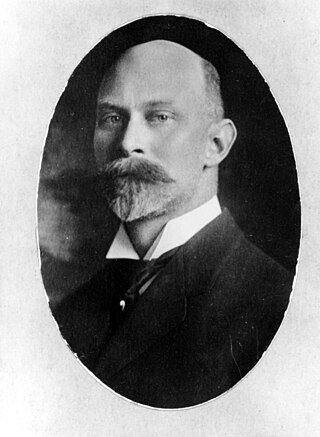
Thomas Wayland Vaughan was an American geologist and oceanographer. He worked with the United States Geological Survey and United States National Museum, investigating the geology of the West Indies, Panama Canal Zone, and the eastern coast of North America. In 1924 Vaughan became director of the Scripps Institution of Oceanography and held the post until his retirement in 1936. His research work concentrated on the study of corals and coral reefs, the investigation of larger foraminifera, and oceanography.
Proceedings of The Royal Society of Queensland is a multidisciplinary scientific journal published by The Royal Society of Queensland. It was established in 1884.
The International Coral Reef Initiative (ICRI) is an informal partnership among nations, international organisations and non-government organisations to help protect coral reefs globally. It aims to implement Chapter 17 of Agenda 21, Aichi Target 10 of the Convention on Biological Diversity's 10-year Strategic Plan, and other relevant internationally agreed objectives and targets. It does so by:
David Ross Stoddart, was a British physical geographer known for the study of coral reefs and atolls. He was also known for key works on the history and philosophy of geography as an academic discipline. He was a lecturer at the University of Cambridge, and then professor and later emeritus professor at the University of California, Berkeley.
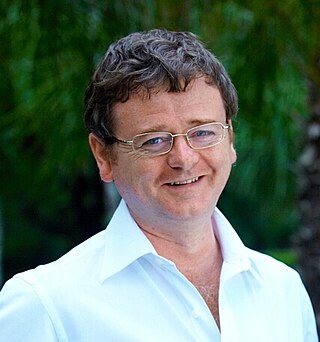
Terence P. Hughes is a professor of marine biology at James Cook University in Queensland, Australia. He is known for research on the global coral bleaching event caused by climate change. Nature dubbed him "Reef sentinel" in 2016 for the global role he plays in applying multi-disciplinary science to securing reef sustainability. He is an Australian Research Council Laureate Fellow and Director of the Australian Research Council (ARC) Centre of Excellence for Coral Reef Studies. His research interests encompass coral reef ecology, macroecology and evolution, as well as social-ecological interactions. His recent work has focused on marine ecology, macroecology, climate change, identifying safe planetary boundaries for human development, and on transformative governance of the sea in Australia, Chile, China, the Galapagos Islands, Gulf of Maine and the Coral Triangle. His career citations in Google Scholar exceed 88,000.

Anthony William Derek Larkum is a British plant scientist and academic based in Sydney. He is professor emeritus of plant sciences at the University of Sydney and adjunct professor at the University of Technology Sydney (UTS).
References
- ↑ "Coral Reefs - incl. option to publish open access". Springer.com. Retrieved 2012-10-23.
- ↑ Reef Encounter, International Coral Reef Society.
- ↑ "Conferences & Meetings". International Coral Reef Society. Retrieved 1 December 2022.
- ↑ "ICRS 2022". International Coral Reef Society. Retrieved 1 December 2022.
- 1 2 "International Coral Reef Symposium (ICRS) Proceedings". ReefBase.
- ↑ Darwin Medal, International Coral Reef Society.
